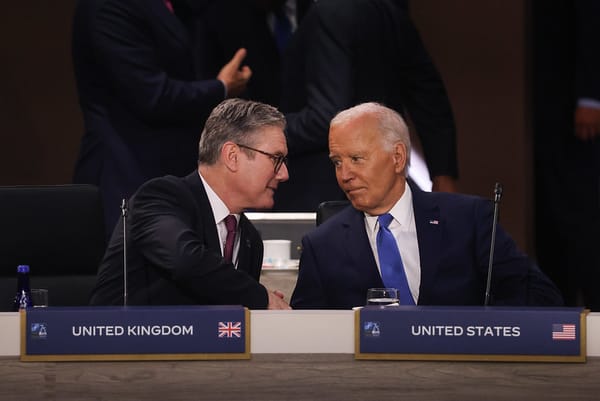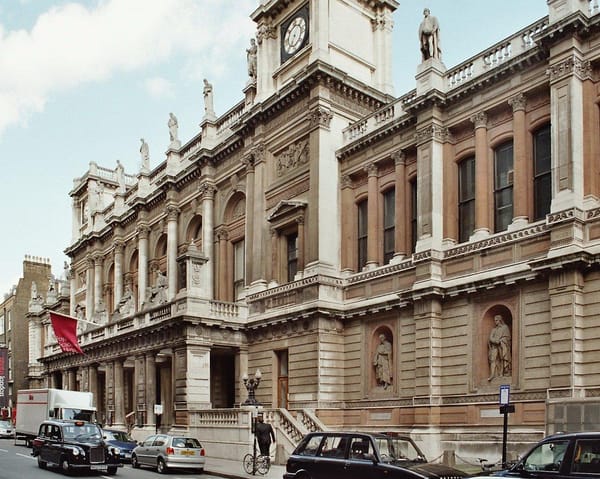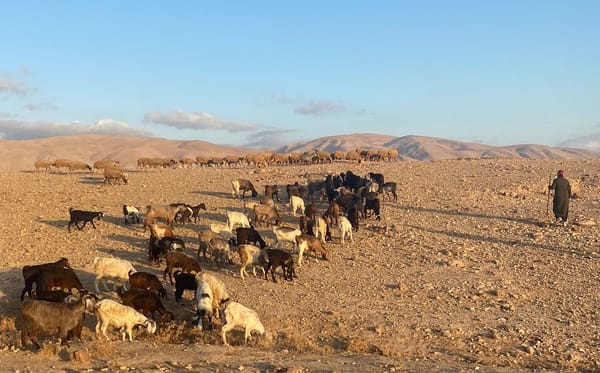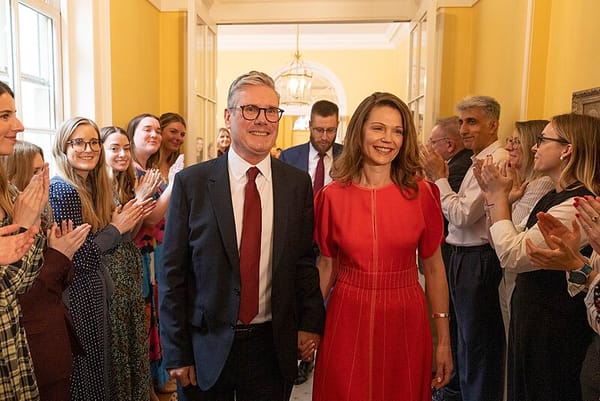Rafah: A reader
The materials helping us understand the situation on the ground and the world letting it happen.
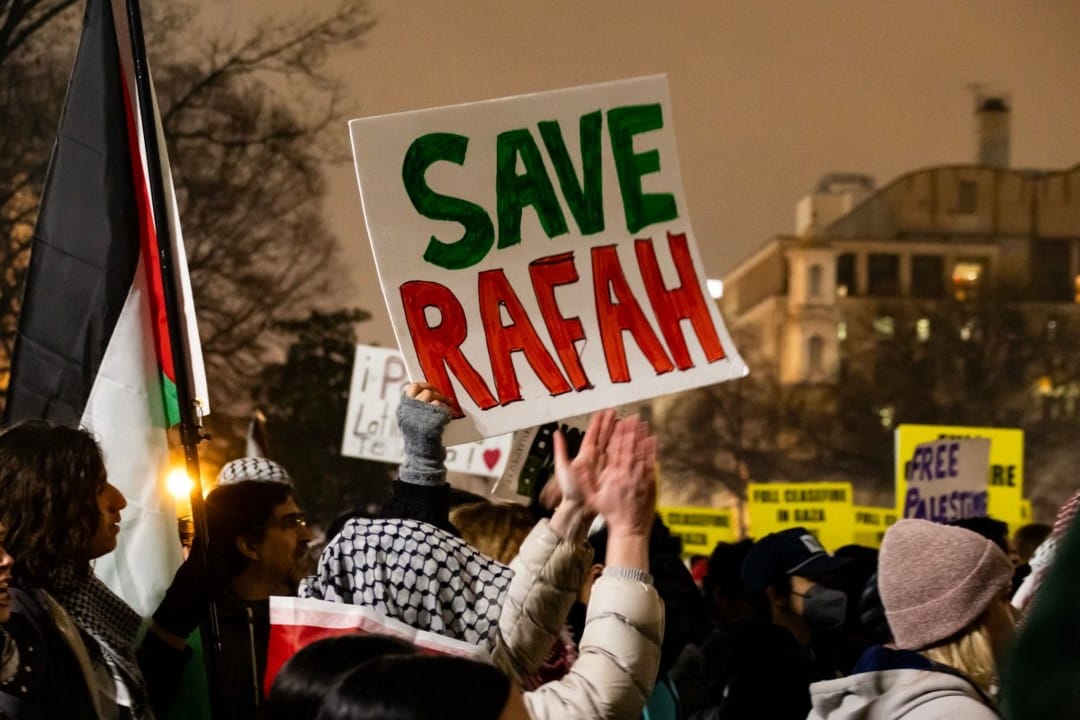
As the holy month of Ramadan draws near, the people of Gaza, already having suffered nearly five months of relentless Israeli assault, face even more peril, rather than much-needed respite. The latest threat comes in the form of the Israel Defense Forces’ planned incursion into Rafah, one of the few remaining zones of relative refuge for displaced Palestinians. Even for more cautious observers, such an operation would be, at minimum, a humanitarian catastrophe, if not also serving as a pretext for ethnic cleansing.
Under the cloud of such dire possibilities, we at Vashti feel compelled to interrupt our regular publishing and use this week’s Pickle to promote the work of those attempting to make sense of the current situation. This includes analysis of the political forces that have brought Israel to the brink of annihilating the last remnants of Gazan habitability, while also touching upon the ways in which our own moral and political entanglements remain complicit in unfolding events. We also try to offer a few seeds of hope.
First, it is worth taking stock of how we got here. In the period since 7 October, what has unfolded is nothing less than the liberal international order coming apart at the seams, caught up in its own contradictions and delusions, and too complacent to change course. Policymakers in the US, UK and Europe who either naively misread or wilfully obscured what is at stake in the Gaza assault – treating it as a conflict between warring parties rather than the culmination of existing tendencies within an Israeli society increasingly captured by religious zealotry and eliminationist ethnonationalism – are being proven wrong daily. The blank check of “self-defence” afforded to the Netanyahu government at the outset has granted license for the darkest millenarian fantasies and territory-grabbing ambitions of the far right to come out into the open, and indeed dictate the agenda.
Efforts by the “international community” to contain or even soften these maximalist positions have fallen flat, due to political cowardice and a lack of accountability. Arms keep flowing into Israel, “ceasefire” remains a dirty word, and International Court of Justice rulings and UN Security Council declarations seeking to arrest the violence are dismissed as “unhelpful”. Meanwhile, as Israel bombs Gaza with impunity, UNRWA, the humanitarian body that “virtually all the residents rely on … for aid”, risks being defunded, based on Israeli allegations of complicity with terror that have proven predictably untrustworthy.
While belated efforts to sanction violent settlers and float the idea of unilateral recognition of a Palestinian state should be welcomed, the overarching strategic environment remains dependent on the purifying, overawing power of brute force. The front opened by the Houthis, for instance, which has destabilised shipping patterns in the Red Sea, and which has roots in a lack of political settlement both in Israel/Palestine and in Yemen, was treated as a nuisance to be eliminated through naval bombardment, not as a moment of reckoning for a failed approach to the region. Here as well, it is the most vulnerable who suffer from the folly of the West’s military-first doctrine, with millions of displaced and hunger-stricken Sudanese – themselves suffering from protracted, large-scale conflict – experiencing significant disruption to their humanitarian lifelines.
Despite this all, the willingness of British masses to protest these developments has not dimmed, nor has leftwing Jewish life become numb to the violence. Indeed, this Sunday, Na’amod: British Jews Against Occupation will be holding a rally in London to demand a ceasefire that ends the siege on Gaza before Israel’s assault on Rafah reaches its summit. It is a demand we must all keep voicing as loudly as we can.▼
A Vashti guide to understanding the unthinkable
In Rafah, the final – and most deadly – stage of this genocide is upon us – Ghada Ageel, Al Jazeera
For much of its history, Rafah was a city shaped by free movement, serving as a valued stop on the trade route from Palestine to Egypt and beyond. Yet over the last century – through Ottoman and British border regimes, and Israeli invasion and occupation – the movement that shapes the city is no longer free. Rather, it is the internal motion of a dispossessed people overcoming catastrophe. But on the precipice of an apocalyptic Israeli ground invasion, the more than one million Palestinians now in Rafah have been forced to stop moving.
“Displaced many times over, those who are now in Rafah have nowhere else to go. The invasion of Rafah would thus be the last, and the most deadly phase of this genocide – the first genocide in human history that has been broadcast live to the world.” Third-generation Palestinian refugee Ghada Ageel narrates this moment through the city’s modern history, which converges with today’s ongoing genocide in the life of her aunt Rayya.
Displaced to Rafah in November 1956 as a result of the “tripartite” invasion of Gaza and the Israeli military’s slaughter of over 275 men in her home of Khan Younis (an adopted home, that is, as she was forced into Gaza following the destruction of her village during the Nakba), Rayya has endured a lifetime of inhumane treatment in an environment of unrelenting death and violence. Ageel traces her aunt’s life through the decades up to today, as 89-year-old Rayya remains in Rafah, uncontactable for several weeks. – Evan
Stranded in Rafah as an Israeli Invasion Looms – The New York Times
Earlier this week, Ghada Al-Kurd and Hussein Owda, both sheltering in Rafah, spoke to The Daily. They describe in detail the everyday conditions in the city; of hunger, freezing temperatures, and waking nightmares as their makeshift accommodation shakes while shelling resounds.
Listen as Ghada speaks about her family who have died from bombardment and starvation and lack of diabetes medication. Listen as Hussein, now temporarily living in a house with no windows or doors alongside his three kids, aged 9, 6, and 16 months, remembers his family’s new dream home that he and his wife spent two years building, ready for move-in on 7 October, now destroyed. Sit in the silence while they consider what happens next. Sit and listen and cry. – Evan
Médecins Sans Frontières (MSF) briefing to UN Security Council
It’s telling that a briefing given by a non-partisan humanitarian actor – in this case, Christopher Lockyear, Secretary General of MSF – to the UN Security Council on the situation in Gaza is so thick with righteous anger. Lockyear’s reasons to be angry are myriad: he recounts MSF staff and their families being shelled and shot at by the Israeli army, vehicles being bulldozed, hospitals being bombed and raided; he describes the civilians they are trying to care for undergoing amputations without anaesthetic, giving birth in plastic tents, suffering unimaginable trauma that leaves children as young as five saying they would prefer to die.
There is no equivocation about where to place the blame: “This situation,” he states, “is the culmination of a war Israel is waging on the entire population of the Gaza strip – a war of collective punishment, a war without rules, a war at all costs.”
His sharpest criticisms, however, lie with the UN itself and its failure to enforce those international standards which were the purpose of its creation, primarily thanks to the power of the US veto. “Meeting after meeting, resolution after resolution, this body has failed to effectively address this conflict,” he says. “We have watched members of this Council deliberate and delay while civilians die.”
This disillusionment is now widespread among those who believe in peace, freedom, and humanitarian care, a development which points to one of the ways in which this assault is likely to change the geopolitical landscape forever. After sacrificing much of their authority to allow Israel to carry out its genocide, it’s hard to see how the supposed stewards of the liberal international order will be able to get it back. – Fran
This Is the West’s Genocide Too – Hamza Ali Shah, Tribune Magazine
Having defended Israel’s right to enact the war crime of collective punishment at the outset of the bombardment and suspended MPs who dared to envision a future in which Palestinians and Israelis were all able to live in peace, Keir Starmer declared last week that a Rafah offensive “cannot happen”. Similar shifts in tone have taken place among other Western leaders, including Rishi Sunak and Joe Biden, as the prospect of a new level of horror in an assault that has already claimed nearly 30,000 lives looms.
Hamza Ali Shah sets the apparent miraculous growth of backbones in its necessary context: months of rhetorical support for a state that made its genocidal intentions explicit from the outset, and, crucially, a failure to back these new warnings with any threat of sanctions, legal challenges, or other forms of follow-through. Starmer’s subversion of parliamentary democracy in order to prevent a vote on an immediate ceasefire this week shows just how superficial the shift is.
Genuine changes of heart or moments of clarity about the actions of Israel are, of course, to be welcomed: these are what many of us are striving to affect in our own communities. But we should not make the mistake of seeing them in the actions of cynical political actors whose efforts are directed only towards washing the blood from their hands. – Fran
What use is this court if it can’t stop the war?’ Gazans react to ICJ ruling – Mahmoud Mushtaha and Ruwaida Kamal Amer, +972 Magazine
One kernel of hope in the international response to the Gaza crisis has been the South African case to the International Court of Justice (ICJ), which, in proceedings launched in January, accuses Israel of war crimes amounting to genocide. For expectant onlookers sympathetic to the Palestinian cause, this act, beyond adding greater diplomatic and legal pressure to end the siege on Gaza, represents a moment of Global South solidarity and anticolonial struggle among interrelated victims of apartheid. Yet, for those most directly impacted by the decision, the Palestinians on the ground, what matters most is how this goodwill translates into action.
In this important +972 consultation with Palestinians in the north and south of the Gaza strip, what emerges is an “overwhelming sentiment of dismay” as the slow, cautious, equivocating wheels of justice fail to rise to the urgency of the moment, which demands immediate ceasefire and humanitarian support on a massive scale. – Matt
The Work of the Witness – Sarah Aziza, Jewish Currents
In the aftermath of the Holocaust, the role of witness – the bearer of testimony, documentation and accusation – took on a privileged, even mythic role in fortifying the liberal moral order. Reportage of mass atrocity in far-flung places like Darfur and Uganda were expected to rouse the moral reason and benevolent sentiment of informed, democratic publics, thus marshalling the forces of international law and global policing to the protection of disempowered victims.
Sarah Aziza, through a stirring mix of personal reflection and philosophical reckoning, disabuses the Western witness of its self-gratifying power, instead – amid Israel’s openly broadcast yet unimpeded march towards genocide in Gaza – unmasking the impotence, deceit and hollowness that witnessing currently entails. More than a collective indictment or last-gasp scream of defiance into the void, Aziza’s own testimony guides the reader towards a form of witness no longer elevated in angelic, uncompromised distance, but instead manifest in the embodied, intimate, ego-displacing position of “sacrifice, mourning and resisting.” – Matt
Hayim Katsman, an Israeli Murdered by Hamas, Envisioned a Democratic Israel/Palestine – Hayim Katsman, Jacobin
In Israel’s assault on Gaza, the destruction of cultural and educational centres, alongside the targeting of journalists and academics, reminds us that violence entails the erasure not only of lives and infrastructures, but also of alternative visions of hope and communion. On 7 October, one of those vital flickers of hope was extinguished when Israeli peace activist and academic Hayim Katsman – an outspoken critic of occupation – was tragically murdered at the hands of Hamas.
Yet the memory of Hayim and his ideals continue to bless us, not least in the recent posthumous publication by Jacobin of his essay Reimagining Zionism, in which he gestures towards an idea of Jewish national survival and endurance that is “non-ethnonational” and “non-exclusivist”. More than a manifesto or critique, it is a call to action for fellow leftwing Israelis to develop the common political ground and organisational solidity to combat their religious Zionist adversaries on the right.
As with the public pleas from Katsman’s grieving family, which reject the use of “our death and our pain” as justification for the vengeful Israeli responses we are witnessing today, the voice emanating from these paragraphs rejects false narratives of zero-sum security and civilisational warfare that define the international response to this crisis. – Matt ▼

